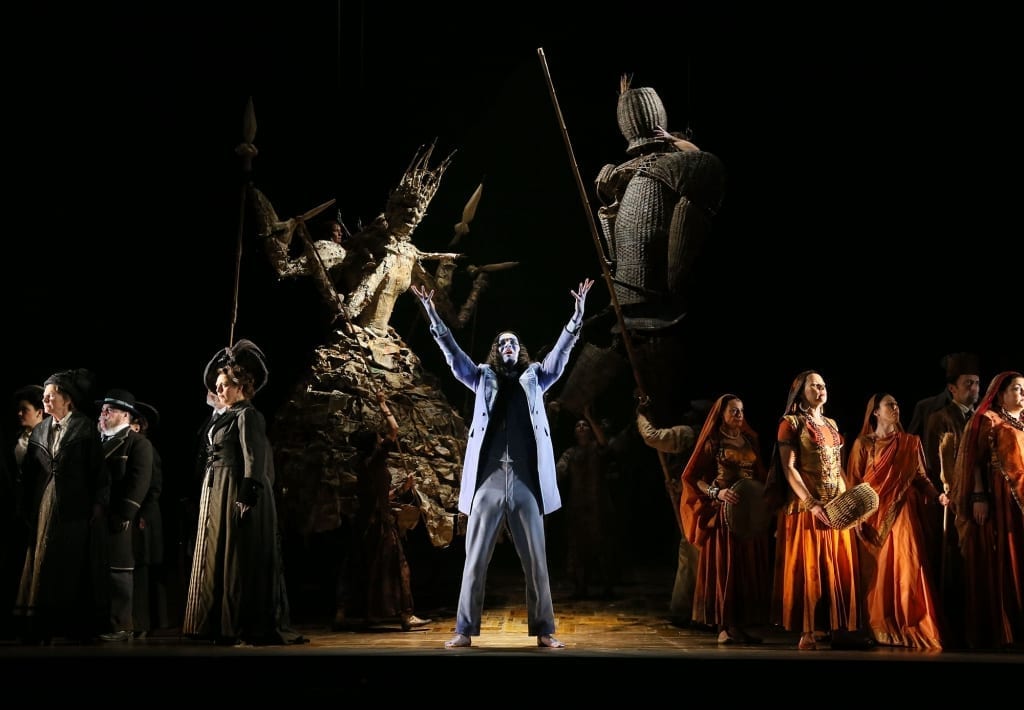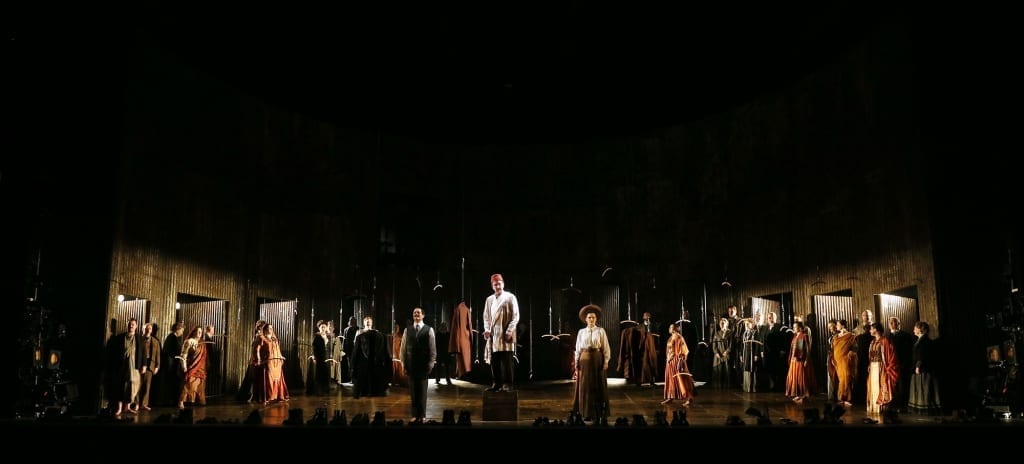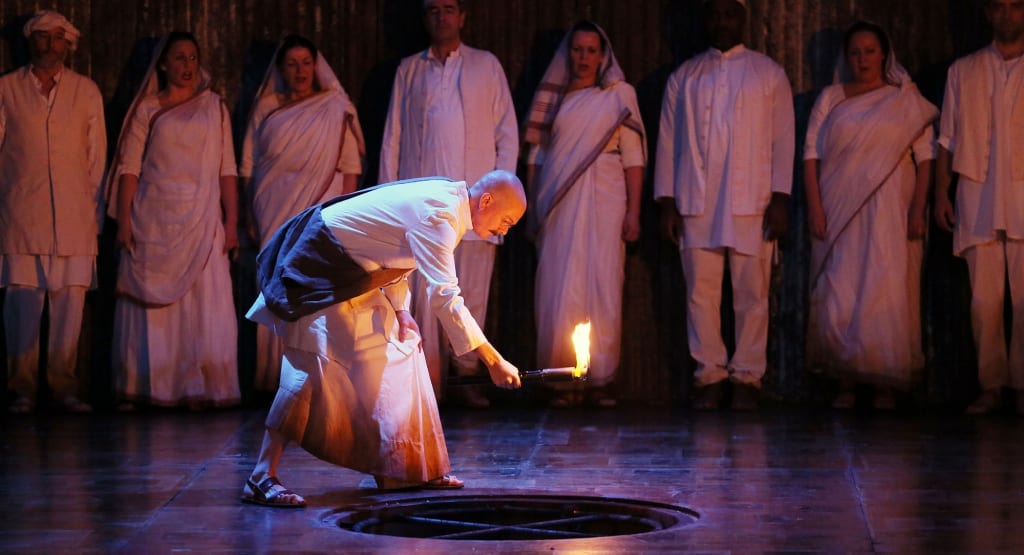This is the third revival of a landmark 2007 production, the first in the UK of this popular opera. It forms the centrepiece of Glass’ Portraits trilogy, focused on the dilemmas of Politics (as opposed to Religion and Science, which are the themes of Akhnaten and Einstein on the Beach). There is no standard narrative here, more a set of meditations on themes associated with the beginning of Ghandi’s career of non-violent social protest in South Africa. A set of tableaus is deployed with each act associated with a governing mentor, whether past, present or future – Tolstoy, Tagore and Martin Luther King – presiding silently over their dedicated act.
Minimalism is not the most helpful term for the style of composition deployed here. Rather the repetitive patterns of sound gradually accumulate layers of orchestral colour before shifting key at significant moments. This is music of constant anticipation that only reluctantly and briefly arrives as great blocks of sound. Layering rather than narrative line is what counts here, with no formal arias but careful management of seamless transitions between single, group or choral singing. This is very complex music to perform, where an ability to count is paramount. A huge responsibility rests therefore with the conductor, in this case the excellent Karen Kamensek, and it was striking that for once everyone in the orchestra and on stage was looking at her for guidance through all the repeats, and repeats within repeats. There is very little margin between shimmering success and obvious disaster in this score, and it was a very considerable technical feat that nothing went awry.
With so much resting musically on sound textures in stasis, a greater interpretative burden therefore shifts to the visual stimulus and variety of the production and this turns out to be the greatest strength of the evening. Director Phelim McDermott fills the stage with expertly choreographed and inventive action throughout. Sets, costumes, lighting, video projection, and extravagantly imaginative puppetry all play a role in beguiling the eye. Not all of it clearly relates to what is taking place on stage, but it is never less than diverting, and often truly astonishing.

Where the music is more propulsive and varied, as in the ‘Tolstoy Farm’ section, the visual interventions are less obvious: a golden pastoral glow is broadly enough to go with the memorable tune reminiscent of a Russian peasant song, and orchestration that reminds you of the Stravinsky of The Firebird. But in ‘Tagore’ we need more help to compensate for the relative blandness of the music, and receive it in the form of an elaborate visual allegory of Gandhi’s founding of the journal Indian Opinion, all streamers of newsprint, sellotape, and elaborate visual sculpture. In every act we are helped along with sections of the libretto projected onto the curved corrugated iron backdrop of the set like the text from silent films. There are no full surtitles as such, and this is not a great loss, given the absence of strict story. It is not always clear what all the various huge puppets actually mean but they are assembled ingeniously from all manner of everyday objects and manipulated with great charm and skill.

Among the cast Toby Spence really stands out in the lead. This is a truly heroic return to a very demanding role after major illness: he finds the dignity, stature, determination and serenity that are centrally required, and with an unflagging stamina. Everyone else in this quirky selection of parts, takes their opportunities to project a particular emotion or characterise a certain moment, and the chorus act both menace and solidarity with rare skill and facility. A lesser production would reveal the flatter patches of this over-long work, but, as it stands, this revival is a fine representative of the kind of work that ENO does best, and which would not be replicated in Covent Garden.

